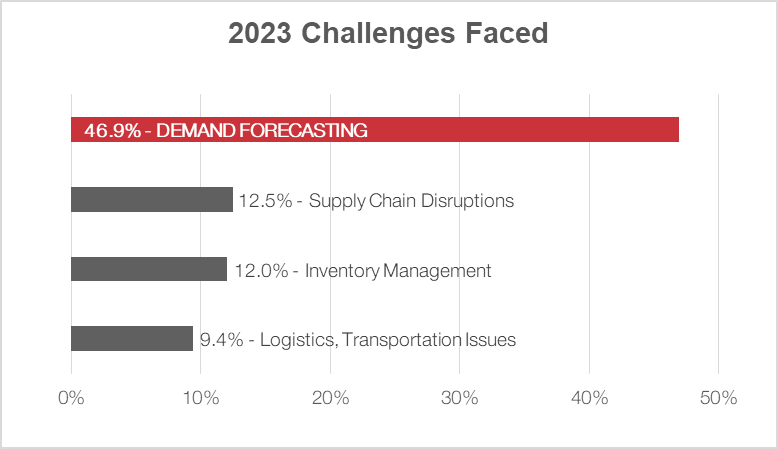Vietnam's supply chain leaders reflect on challenges
 |
Vietnam is a production powerhouse for the world, evolving its manufacturing capabilities over the past two decades, and has proven to be a solid alternative for companies seeking to reduce dependency on China. However, Vietnam remains a supply-driven country, and is highly dependent on global demands to sustain its industrial activity.
Vietnam's need to remain competitive and relevant to the global supply chain has never been stronger as this year witnessed a slowdown in consumption from its main trading partners, and along with the emergence of other players in the manufacturing field such as India and Mexico, the situation calls for a faster transition towards efficiency and innovation.
 |
CEL's survey, implemented from October 10 to October 25 and released on October 27, reveals that the majority of supply chain leaders in Vietnam have seen a slowdown in their activity and have little hope for recovery before 2025.
The main challenge for supply chain leaders (46.9 per cent) is demand forecasting - the capacity to predict what is coming. Low forecast accuracy seems to be affecting supply chain performance, as forecasting inaccuracy leads to over stocking and low utilisation of capacity. Expectations are high, however, that emerging technologies can bring value to this area of supply chain logistics.
12.5 per cent of supply chain leaders surveyed highlighted the need for tighter controls of supply chain operations, and industry leaders recognise the need for interconnected supply chain systems and data management.
While a gloomy global economic outlook seems to have settled in for the 2024-2025 period, the need for Vietnam to remain in the race has never been stronger. With limited export and domestic demand, supply chain efficiency has become a pressing concern for leaders. Tighter control and integration, better monitoring of potential disruptions, and the ability for businesses to predict demand in volatile conditions are the main focus points for 2024.
 |
 | German Supply Chain Act: Sustainability focus and Vietnam's implications The 2023 German Supply Chain Due Diligence Act prioritises sustainable criteria in global supply chains. Prof. Andreas Stoffers, country director of FNF Vietnam, and Huyen Nhu Lanh, coordinator of the project at the Delegation of German Industry and Commerce in Vietnam spoke with VIR’s Luu Huong on the opportunities and challenges the new law provides for Vietnam. |
 | Firms hold chances to boost supporting industries amid FDI inflows As Vietnam is emerging as a magnet for foreign businesses, domestic companies now have numerous opportunities to join global supply chains and develop supporting industries. |
 | Nestlé Vietnam contributes to elevating the role of women across the supply chain With a strong commitment to empowering women, especially those in rural areas, Nestlé Vietnam is implementing many initiatives across its supply chain, such as the NESCAFÉ Plan and the Nestlé Accompanies Women programme. |
What the stars mean:
★ Poor ★ ★ Promising ★★★ Good ★★★★ Very good ★★★★★ Exceptional
Related Contents
Latest News
More News
- State corporations poised to drive 2026 growth (February 03, 2026 | 13:58)
- Why high-tech talent will define Vietnam’s growth (February 02, 2026 | 10:47)
- FMCG resilience amid varying storms (February 02, 2026 | 10:00)
- Customs reforms strengthen business confidence, support trade growth (February 01, 2026 | 08:20)
- Vietnam and US to launch sixth trade negotiation round (January 30, 2026 | 15:19)
- Digital publishing emerges as key growth driver in Vietnam (January 30, 2026 | 10:59)
- EVN signs key contract for Tri An hydropower expansion (January 30, 2026 | 10:57)
- Vietnam to lead trade growth in ASEAN (January 29, 2026 | 15:08)
- Carlsberg Vietnam delivers Lunar New Year support in central region (January 28, 2026 | 17:19)
- TikTok penalised $35,000 in Vietnam for consumer protection violations (January 28, 2026 | 17:15)

 Tag:
Tag:




















 Mobile Version
Mobile Version